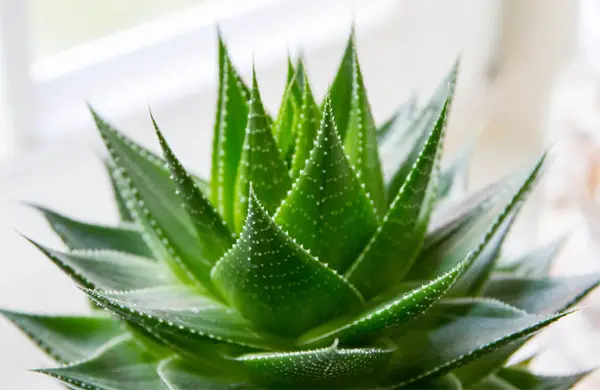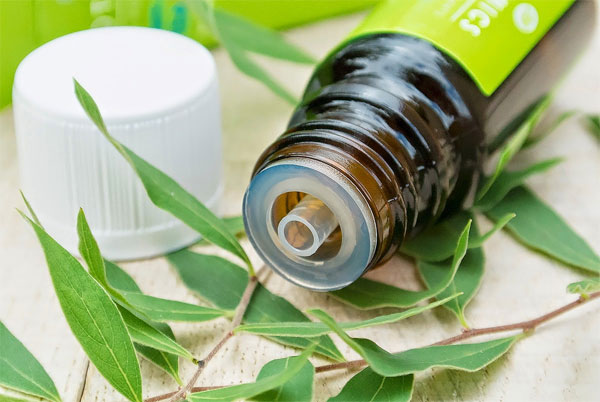Psoriatic arthritis is characterized by inflammation of both the skin as well as the joints. It is a chronic condition that presently affects about 2 percent of the population of Caucasians in the United States.
It is identified by telltale red raised patches of skin that are usually scaly and frequently found on the tips of the knees, the head and the elbows. They may also be located on the belly button, the ears and even the back.
Psoriatic arthritis doesn’t usually hit until a person is between the ages of 40 and 50 years old. However it can strike earlier or later depending upon the person. Typically men and women are affected equally.
In approximately 80 percent of the cases, the arthritis will precede the psoriasis. In many patients the diagnosis is difficult at best. Patients may suffer from arthritis for up to 20 years before the psoriasis appears.
With no rhyme nor reason for how quickly the condition will manifest itself, it may be that the arthritis appears before the psoriasis or vice versa. There is no predicting. There are many forms of the condition and it may attack the eyes, lungs, heart, kidneys and more.
For this reason, many patients choose to treat only the symptoms that are affecting them at a given time and thus choose to treat their condition naturally.
Here are some of the more common natural remedies that are used to treat psoriatic arthritis. However, it’s important to talk with your doctor prior to taking any herbal supplements.
Some supplements can interact with other medications and your condition. Also, some supplements should not be taken if you’re breastfeeding or if you’re pregnant. Always check with your doctor or pharmacist if you have diabetes, high blood pressure or if you have any mood disorders.

Aloe Vera
The aloe Vera plant has long been known to relieve burns and skin conditions. According to research, it can also help to reduce the redness that is associated with psoriasis and the scaling that accompanies it. There are a variety of creams available today that contain aloe Vera.
Important note: Taking aloe Vera in tablet form has shown no benefits for reducing scaling skin and the pain of arthritic joints. In fact, according to studies it may be harmful to health.
Apple Cider Vinegar
It seems that everywhere you turn in the natural remedy realm, apple cider vinegar is making an appearance, and with good reason. This all natural remedy can help to relieve joint pain and do a myriad of other things to help the body stay well and heal.
You can sip it by using one quarter cup to a cup of warm water (add honey and lemon if the taste is too strong and you can start slowly by adding in one teaspoonful at a time until you work your way up to one quarter cup).
Use the organic or the unfiltered type for best results. Some prefer to dilute it on a one part water one part apple cider vinegar to prevent the burning sensation to the skin when using it.
You simply mix it and dab it on the skin with a soft cotton ball or tissue. Some also state that after it dries it should be rinsed off to prevent irritation. If your skin is cracked or bleeding try a different remedy as this one will sting and cause more irritation.
Capsaicin
If you’ve ever wondered what makes chili peppers hot, it’s the capsaicin. This same ingredient is also added to a lot of creams and ointments and can do a lot to help relieve pain. The capsaicin helps to block the nerves that are transmitting the pain.
It also helps reduce inflammation and the scaling and redness that accompany psoriasis. It may cause a slight burning sensation when applied but this will quickly disappear and be replaced with relief from the pain.
Capsaicin creams are readily available in local pharmacies as well as many grocery stores. You can also find them in health food stores. They are located in the same aisle as lotions and other pain relief creams.
Dead Sea Salts
Soak aching joints in Dead Sea salts. Dead Sea salts have been long renowned for their pain relief. Just 15 minutes may help to slough off those scales and relieve the intense itching that accompanies psoriasis. Always apply moisturizer after soaking to help smooth your skin.
The minerals in the Dead Sea salts are said to offer many benefits including pain and inflammation relief.
Epsom Salts
You can also soak in Epsom salts as well. Use warm but not hot water and soak in the tub for at least 15 to 20 minutes for best results. Again, apply a moisturizer when you’ve finished patting yourself dry with a soft fluffy towel.
Epsom salts can also be used in a foot soak or on a cloth to lay over sore muscles. They are full of magnesium which may help to reduce inflammation and soothe painful joints.
Oatmeal
Oatmeal mixed with some water into a paste is an excellent way to treat scaling skin and itchy red skin. Simply make a simple paste of oatmeal and water and apply to the areas where your psoriasis is located. You can also find many great oatmeal creams on the market today.
You can also add oatmeal to a bath for an oatmeal soak as well. If you’re looking for an inexpensive remedy, this just may be it. Apply as needed and soak as required for some relief. You may wish to tie the oatmeal into a piece of cheese cloth when using it in a bath.
It can become gummy and thick when added to water and you may find that it clogs your tub. Simply pour one half cup into the cheese cloth and tie it shut. Then toss it in when you fill your bath. Use the tied oatmeal in the cheese cloth to rub on skin while soaking for extra benefits. Then simply squeeze the water out and toss it out.
Turmeric
Renowned for its anti-inflammatory as well as its antioxidant benefits, it’s also said to help relieve psoriasis. Said to be able to alter TNF cytokine expression it’s supposed to help ease the psoriasis as well as the arthritic flares.
Found in both supplemental form as well as powdered that can be added in to your foods. You can find it in both your grocery store as well as health food stores. Added to foods you should find relief in a short amount of time with this remedy.

Tea Tree Oil
Tea tree oil can offer a lot of antiseptic benefits and may be used directly on the skin. It can be found in shampoos as well as creams and ointments. Be mindful that a few people do have an allergic reaction to the oil.
You can also combine it with a carrier oil such as sweet oil, olive oil or even coconut oil and then apply it to the scaling areas of your skin. Simply add a few drops of tea tree oil to your favorite carrier oil and then gently apply it directly to the scaling parts of the skin.
Vitamin D
Vitamin D has been shown to offer some relief for arthritis and for psoriasis. Many people are lacking in Vitamin D. You can take supplements as well as spend a few extra minutes in the sun every day to increase your levels of Vitamin D.
You can also find Vitamin D in a liquid capsule that you can pierce and rub on the skin. Some have actually claimed that this is very soothing to the scaling of psoriatic arthritis.
Oregon Grape
This anti-microbial herb plays an important role in immune responses of the body. According to studies, it can treat mild to moderate conditions of psoriasis. Always use this under the guidance of a doctor as it does happen to be a part of the alkaloid family.
Oregon grape is found in your local health food store as well as in the supplement aisle of most grocery stores.
Consider Avoiding Gluten
Gluten is found in wheat, rye and barley. It is what gives bread dough its elasticity. It also tends to give you joint pain and it can cause inflammation. For some reason, this is more true as we age than when we are younger.
Perhaps our bodies forget how to properly digest it. Either way, avoiding products with gluten in them can go far in helping to relieve the pain and scales of psoriatic arthritis.
If you’re feeling deprived because you’re removing gluten from your diet, take heart, you can still enjoy sourdough bread as long as it has risen for over 7 hours. Many people have found great relief by simply removing gluten from their diets.
The skin conditions seem to fade away as well as the joint pain. It can take two to three weeks for full results however you’ll notice minor results within hours of stopping gluten from your diet.
Avoid Processed Foods
Another thing to consider is staying away from all processed foods. Processed foods are often linked to inflammation and pain. Avoid trans fats as well as processed foods. Consider healthy alternatives such as canola oils and olive oils in lieu of trans fats.
Processed foods undergo many processes during their preparation and many of these processes rob the foods of their nutritional value. This in turn robs your body of important nutrients and vitamins that may be protecting your joints.
Learn to cook from scratch with all natural wholesome ingredients for best results. Instead of boxed foods read up on healthier recipes and make your own healthier version. You may be amazed at how healthy your skin becomes as well as your reduction in pain.
Bromelain
If you enjoy pineapple, you’re in luck. Pineapple is full of a lot of healthy enzymes including bromelain. Bromelain has long been known to help reduce pain and inflammation. It can also help to eliminate toxins and remove the wastes from your body.
By removing these toxins and wastes your skin will be clearer and less scaly. Those toxins and wastes often are excreted from your pores.
Just a few dietary changes are often all that is needed to find relief from the psoriasis portion of your psoriatic arthritis. Try drinking a glass of unsweetened pineapple juice on a daily basis and see if you don’t gain some ground on your pain and your skin condition.
Devil’s Claw
Several studies have found that Devil’s Claw is very helpful at helping to alleviate the pain and the inflammation of psoriatic arthritis. It’s said to be as effective as any of the COX 2 inhibitors but it doesn’t have the serious side effects of such inhibitors.
According to a study that was conducted in Germany, it is very similar in composition to Vioxx and treats the pain and inflammation in much the same fashion without the serious side effects.
Always check with your doctor prior to using Devil’s Claw. Many supplements will interact with other medications so you want to be sure and avoid any interactions with medications that you may already be taking. Follow your doctor’s advice.
Ginger
Ginger has long been used in treating skin issues and pain, in fact, it’s been used for well over 2500 years in Asia. Ginger can help to reduce nausea, arthritic pain and the inflammation that often go along with it.
Ginger works by reducing the number of prostaglandins that are what help to create the pain of arthritis. Similar in composition to NSAID’s and other prescription medications, ginger however doesn’t have any side effects like the medications do.
You can sip ginger in a tea or you can use an ointment that has ginger in it. Either way, you’re sure to improve your psoriatic arthritis by using some ginger.
Vitamin E
Vitamin E is excellent for skin conditions. It’s soothing and nourishing to skin and can help to reduce inflammation as well as pain. It works to help lower high blood pressure and balance a healthier immune system.
Vitamin E has long been known to reduce scaring and treat skin conditions. Many people use it after a surgical procedure to help reduce scaring.
You can use vitamin E capsules and pierce them and spread them directly on the skin or you can buy creams or ointments that are readily infused with Vitamin E. Either way, it is very soothing and will help to reduce the redness and inflammation that is associated with psoriatic arthritis.
Sugar
According to a recent Harvard study, sugar can cause your inflammation and pain to worsen. While there is little definitive evidence, it may be worth trying to cut back and see if that doesn’t help to reduce the pain of psoriatic arthritis along with the inflammation and skin scales.
Many people have allergic reactions to seemingly everyday foods. By eliminating specific food groups from the diet many people are surprisingly relieved of their skin symptoms and painful joints.
Protect Joints
Maintain a healthy weight and protect your joints by using gadgets to do simple tasks such as open a jar or lift heavy pans (use both hands for this task not just one hand to protect your wrist joints). Learn to lift with your legs not your back and reduce wear and tear and strain on your joints.
Avoid excess strain on joints by babying them along the way. Also, when you have a psoriatic breakout, don’t pick at the skin or scratch the skin, this can open the skin up and allow bacteria and germs to enter the skin and cause infections. Treat breakouts promptly with skin creams and the like for best results.

Exercise On A Regular Basis
Joints must be exercised for best results. Keep moving even if you’re only walking or swimming. The more you move the more your joints are used which can help to keep you mobile.
Many people mistake the fact that they ache as a sign that they’re doing too much when in fact they actually need to be more mobile. It is amazing what a short walk can do for your health and your pain.
Following these tips may help to relieve your psoriatic arthritis. You may have to mix and match the above suggestions to come up with your own personalized way of treating your condition. Always check with your doctor prior to taking any supplements.
If you’re already on medications you might find that they can interact with some of the above mentioned supplements in a negative way. Your doctor is the best person to discuss these supplements with and the medications that you’re already taking. Never stop your prescription medications without first discussing it with your doctor.
Stopping any medication suddenly may cause other health issues so you’ll want to talk this over with your doctor to help avoid any sudden health issues.
Resources:
https://www.psoriasis.org/treating-psoriasis/complementary-and-alternative/herbal-remedies
http://www.edgarcayce.org/are/blog.aspx?id=4089&blogid=445